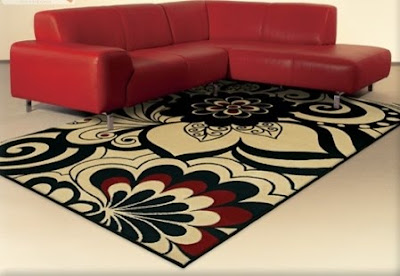
Oriental weavers rug are very special! They have become valued throughout the world during the past century as a work of art. They are often referred to as the aristocrat of carpets. There is a rich history and color associated with this unique rug. Many people envision a magic carpet of some Arabian legend, but to the contrary, they don't perform magic by flying through the air.
They do, however, perform magic when it comes to transforming the interior of your home with extraordinary beauty. The term Oriental weavers rug has been traditionally been used to describe hand-knotted rugs from the east. Interior designers refer to them as a custom floor mat, or depending upon the purchase price, cheap area rugs.
When an Oriental weavers rug and is made, it typically involves stretching warp threads on a loom and knotting the pile to these threads. Once the row of knots are completed, a weft thread is inserted. After the craftsman has completed the knotting of the entire carpet, the pile is then shorn.
There are many skilled craftsmen worldwide, and the precision of design depends upon the skill level of that craftsman. The precision of the design depends on how tightly the rug has been knotted and how short the craftsman has cut the pile. Most vendors of Oriental weavers rug will refer to the number of knots per square inch as these are used as an indicator of the fineness and durability of the rug. Obviously, the more knots, the better the quality of rug. You'll find that the best quality rugs will have somewhere in the vicinity of 500 to 1,000 knots per square inch!
There are many countries in the Far East that are well-known historically as great carpet producing areas such as Turkey, Persia, Turkistan, Caucasus, Afghanistan, Nepal, Pakistan, India, China, and many others. You also find that Spain produces a tremendous variety of hand-knotted Oriental weavers rug of distinction.
Many Arab and Greek early writers referred to Oriental weavers rug in early ancient times, but when the first oriental rug was woven is unknown. In the Altai mountains in southern Siberia in 1949, a Russian archaeological expedition unearthed a royal burial mound that contained a preserved frozen carpet in miraculous condition, known as the Pazyryk carpet. It was used as a saddle cover for a horse that was included in the burial tomb.
This incredible piece of artwork was beautifully designed and dates back to the fourth or fifth century B.C., and is the earliest known surviving example of a hand-knotted carpet known to man. Today many reproductions and imitations exist and are referred to as cheap area rugs, braided rugs, and Oriental weavers rug.
There are several theories surrounding the technique involved in knotting carpets. It is believed that nomadic tribes in Central Asia produced small rugs that were typically decorated with geometric motifs, that were inspired by animal forms and plants. For wandering nomads the rugs served as floor coverings, curtains, saddlebags and wall hangings. The nomads had great carpet-making skills and took great pride in their work. Due to their security being threatened by natural elements or human foes, they often had to dismantle their looms and move on.
Unfortunately, when this occurred their creations contained irregularities in weave, design and selvages. These wandering nomads were responsible for spreading the art of carpet making to new lands and new peoples. Over the centuries, great carpet making centers such as Persia and Turkey developed. When Persian manuscripts from the reign of Choroes I, the king of Persia between the years of 531 and 579, described a unique carpet entitled Spring Carpet of Choroes which was woven of silk, gold, silver and wool, and was studded with elaborate precious stones. The 16th century through to the first half of the 18th century was known has Persia's golden age of carpet making.
Today, a number of carpets actually exist from this era that are recognized for their incredible beauty, harmony of colors, and originality of designs. Whether you're looking for cheap area rugs for a hallway or living room or desire nothing but the best Oriental weavers rug money can buy, it is always interesting to ponder the history behind this remarkably beautiful handmade item!